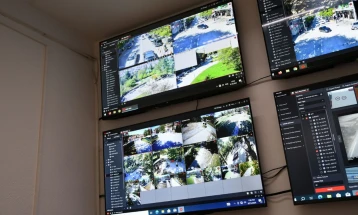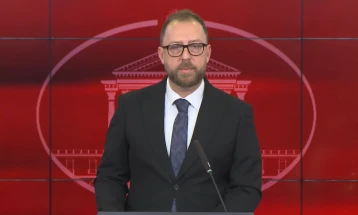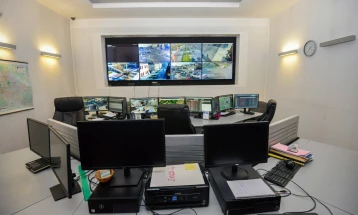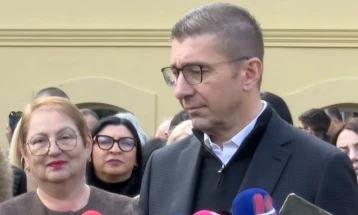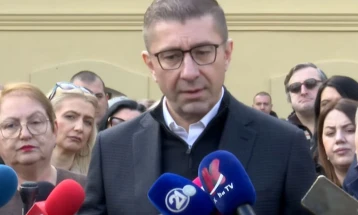Xhaferi: MPs should objectively review audit reports regardless of who is in power
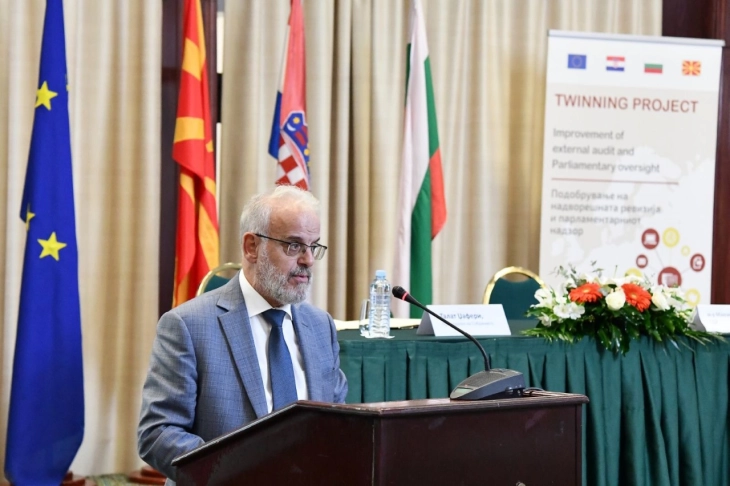
Skopje, 21 October 2022 (MIA) – Regardless of who is in power, and who is in opposition, lawmakers should always review the audit reports objectively, transparently and with a high level of expertise in their reading, understanding and decision making, said Parliament Speaker Talat Xhaferi on Friday.
Before the signing of the Memorandum of Cooperation between the State Audit Office (SAO) and the Parliament of North Macedonia, at the final event of the twinning project “Improvement of External Audit and Parliamentary Oversight”, Xhaferi mentioned that the various political options should be united in the review of the audit reports, and that the review should be objective, regardless of who holds power or what party a certain elected official belongs to.
“The aim of the Memorandum is to establish professionally sustainable and efficient relations with the SAO for an even better oversight of the spending of public funds and greater accountability by the institutions financed by the state budget. The oversight will be more transparent if we have an established practice and a mechanism which would deliver final reports, group them by topics, familiarize the MPs with them and finally lead to the reviewing of the final audit reports in Parliament,” said Xhaferi.
The Chief Auditor at the SAO, Maksim Acevski, said that the Memorandum will enable the delivery of data in the section of final audit reports, as well as support the work of the expert parliamentary services in the section of submitted final audit reports.
“The Memorandum also obliges the SAO to prepare a guide for the role of the SAO and Parliament in the context of improving the management of public funds in the country,” said Acevski.
In his address at the event, the EU Ambassador to the country, David Geer said that improving the work of the SAO will lead to greater accountability and efficiency in all segments of the state administration, which in turn will positively affect the daily life of the citizens.
“Reform in the public finance management and the strengthening of the functions of external audit are crucial elements in the preparation of the country for EU membership. Now, with the screening process in place, it is high time to start thinking on how we can move this reform forward. This applies to every area, so please take advantage of the opportunity that you have been given to move forward with the reforms. The standards and principles have been set, the screening and negotiations processes are a great opportunity to move forward in the interest of everyone in the country,” said the Ambassador.
He further pointed out that the goal of the project is not only to improve the legal framework and the institutional capacity of the SAO, but also to improve parliamentary oversight over public funds and the cooperation between the two institutions – SAO and Parliament.
“EU welcomes the signing of this Memorandum. We expect that it will result in an improved follow-up to the recommendations of the audit reports and lead to better accountability of the audit subjects. We also hope that the new State Audit Law, drafted with the support of this project, will soon be adopted and help increase the independence of the SAO, as well as improve the cooperation with Parliament,” said Geer, adding that challenges still remain, such as the constitutional recognition of the SAO as an independent body, the strengthening of its capacity and improved accountability of audit subjects in their implementation of the recommendations.
The EU-financed, IPA 2018 twinning project “Improvement of External Audit and Parliamentary Oversight” was implemented in cooperation with the State Audit Office of Croatia and the Bulgarian National Audit Office. The President of the National Audit Office of Bulgaria, Cvetan Cvetkov assessed that sustainable development and progress have been achieved. He touched upon four components of the project: independence, institutional capacity, good-governance and transparency. According to the Croatian Deputy Chief Auditor Nediljka Rogošić, the planned project activities have been completed well and on time, and the expected results have largely been achieved.
The budget of the project, which began February 1, 2021 and will end on October 31, 2022, amounts to 1.5 million euro. At the closing event it was stated that during the project activities, numerous courses/workshops were held for more than 90 participants/auditors of the SAO. In cooperation with auditors from the member states, the SAO auditors performed 15 pilot-audits in seven audit areas, 47 SAO auditors served internships in EU member states, and seven successful study visits of EU partner institutions were organized. In total, 43 activities were held as part of 145 missions which were carried out with the participation of more than 40 short-term experts from Croatia, Bulgaria, Estonia and Spain. ad/sk/
